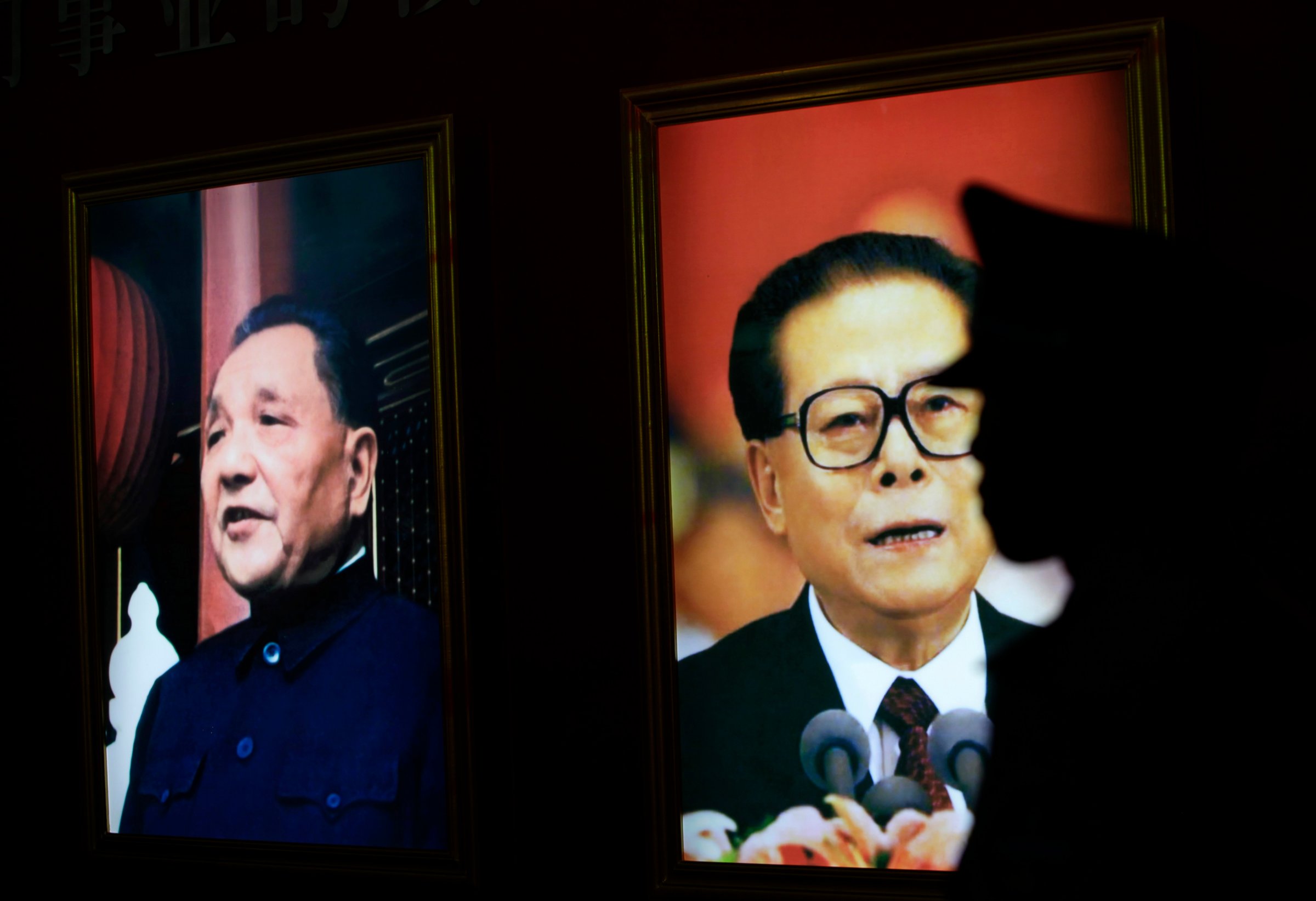
As tanks rolled through the pro-democracy protesters on Tiananmen Square on June 4, 1989, the message from the Chinese Communist Party couldn’t have been clearer: Beijing would tolerate economic change, but not political change. A decade earlier, paramount leader Deng Xiaoping had embarked on the free-market reform that would spark China’s economic miracle.
But on that fateful June day, when he crushed the Tiananmen movement, Deng also eradicated any hope that political liberalization would accompany the government’s quest for prosperity. In fact, Deng believed political reform would undermine China’s economic progress, and the primary purpose of his shift towards “capitalism with Chinese characteristics” was to strengthen the Communist Party’s grip on power.
Twenty-five years later, the attitude of China’s leadership has remained unchanged. President Xi Jinping has proposed a sweeping slate of economic reforms that would hand more influence to private companies and free up flows of capital. On the political side, however, there are no signs that Xi feels any differently than Deng had in 1989. Xi has (arguably) grasped more power in his hands than any Chinese leader since Deng himself. The government tosses critics in prison, squashes any independent social movement, and has even intensified censorship of the Internet and social media. The Communist Party insists on reigning unchallenged.
Looking solely at China’s economic record, the Communist Party can make the case that capitalist success is not linked to democracy, as many in the West have always believed. Since 1989, China’s authoritarian leaders have engineered one of the greatest economic achievements in history. The economy is 20 times bigger today and now ranks as the world’s second largest. Hundreds of millions have been lifted out of poverty. Chinese companies, from telecom giant Huawei to PC maker Lenovo to e-commerce behemoth Alibaba, have become world-beaters. However, that fundamental question — can economic and political reform be separated? — has not gone away.
In fact, 25 years after Tiananmen, it is more relevant than ever. After three decades of rapid economic development, the Chinese economy is a vastly different place. Its growth has been based mainly on plentiful labor, low costs, and a (restricted) opening to foreign business. But that model has run out of steam. In fact, the economy is facing its biggest challenges since the start of Deng’s reforms more than three decades ago. Wages have escalated, eating into the competitiveness of China’s export machine. Debt has risen to dangerous levels. A property boom looks about to bust. An uncontrolled shadow banking sector has sparked widespread fears of a financial crisis.
Excess capacity haunts many industries. Private businessmen remain starved of capital and opportunities. Many of these dangers are the result of incomplete market reform. The bureaucrats of China’s “state capitalism” maintain too much control over the activities of banks and companies. They protect uncompetitive state enterprises and politically connected cronies, apply regulations erratically, and influence who gets bank finance and who does not.
To get itself out of this mess, the Communist Party is going to have to do what it doesn’t do so well: let go. Banks must be allowed to allocate money based on financial fundamentals, not political guanxi or bureaucratic fiat. Companies have to become more innovative and creative, which requires greater freedom of information. Protected and subsidized state industries have to be opened to private and foreign competition. Money must be allowed to flow more freely in and out of the country. Rule of law must be ensured to convince businessmen to take risks and invest in new ideas. That demands a more independent judiciary. The Communist Party is aware of the need for further reform.
In an important party plenum in November, Xi and his policy team pledged to loosen up capital markets, reform the financial sector and the courts, and support the private sector. Yet the pace of implementation has been glacial. The party has to make uncomfortable choices between holding fast to the levers of control and fixing a broken economy.
China’s leaders can no longer have it both ways. The banks cannot be expected to both allocate money more productively and still take orders from meddlesome cadres. Entrepreneurs cannot be expected to launch the next Google in an environment where the Internet is controlled, creative thinking is discouraged and the courts can’t protect them.
The verdict of Tiananmen, then, is coming under strain. If China is to lift itself into the ranks of the most advanced economies and rejuvenate its competitiveness, its people require the freedoms Tiananmen’s protesters fought for 25 years ago. The Communist Party has to wake to the fact that Tiananmen’s legacy is holding the nation back.
More Must-Reads from TIME
- Why Trump’s Message Worked on Latino Men
- What Trump’s Win Could Mean for Housing
- The 100 Must-Read Books of 2024
- Sleep Doctors Share the 1 Tip That’s Changed Their Lives
- Column: Let’s Bring Back Romance
- What It’s Like to Have Long COVID As a Kid
- FX’s Say Nothing Is the Must-Watch Political Thriller of 2024
- Merle Bombardieri Is Helping People Make the Baby Decision
Contact us at letters@time.com